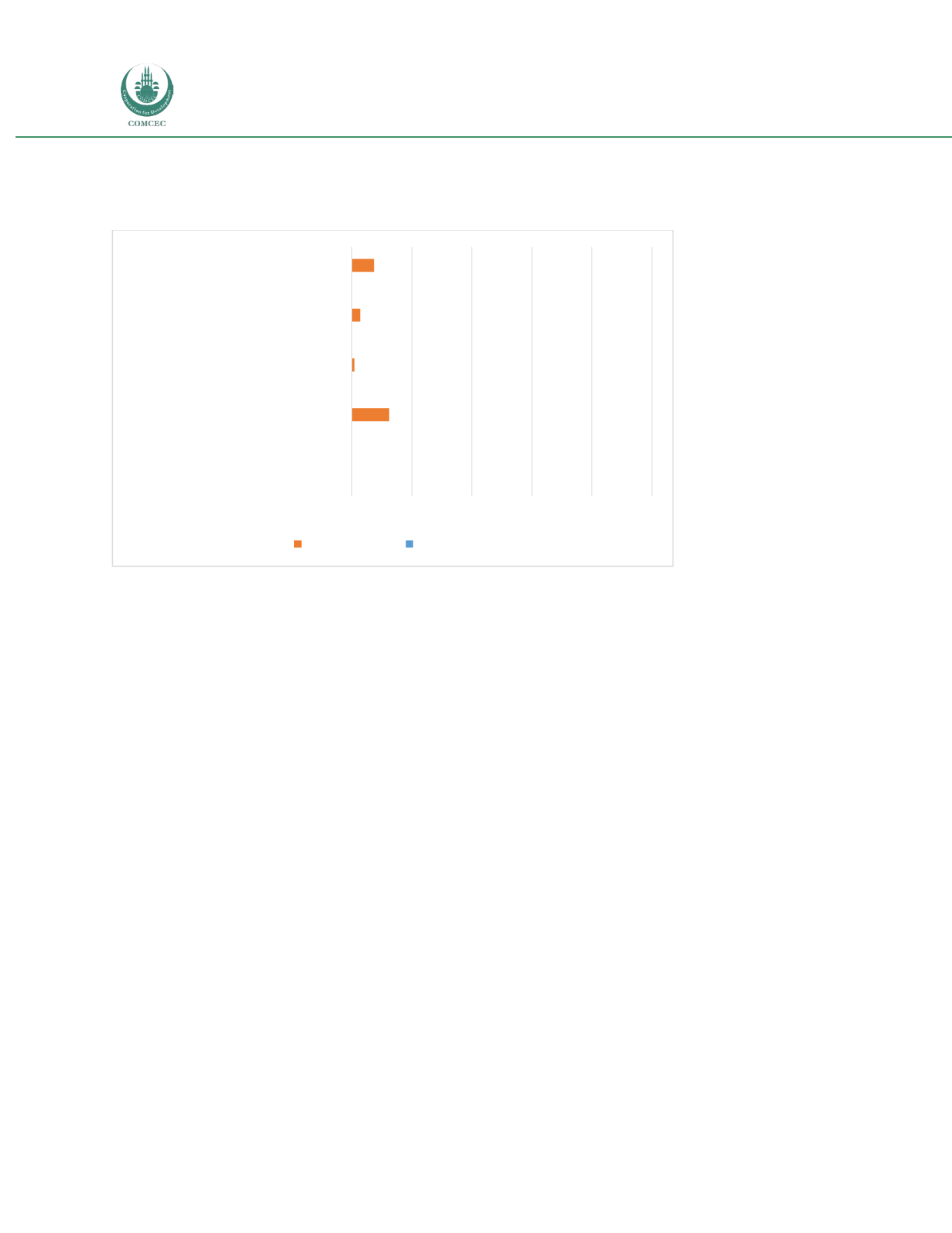

Strengthening the Compliance of the OIC Member States
to International Standards
64
Figure 27: Coverage of SPS measures and TBTs in Pakistan, five largest value exports of the Arab
group
Source: NTM Map.
The final six figures in this section provide information on SPS measures and TBTs in Nigeria and
Pakistan as they affect the exports of the Asian group. The analysis for the Asian group’s exports
reinforces the picture that emerged from a consideration of the Arab group’s exports: some
manufactured goods sectors are subject to very high numbers of TBTs in some OIC member states,
taking Nigeria and Pakistan as broadly representative of regional trends. In Nigeria, the two machinery
sectors stand out: the case of electrical goods has already been referred to, but there are in fact more
TBTs per product in the mechanical goods sector, as many as 378. In Pakistan, it is the case of apparel
and clothing that stands out, with an average of 105 TBTs per product. Again, this analysis suggests that
some OIC members may be too reliant on mandatory public standards, in particular in a sector like
apparel and clothing where the issues of safety that arise with electrical goods are largely absent
(although products of course need to meet basic requirements, like fire safety). It is likely that
compliance with these measures represents a significant burden for exporters in other OIC member
states.
0
0.2
0.4
0.6
0.8
1
Mineral fuels and oils
Organic chemicals
Plastics and plastic articles
Precious stones and metals
Electrical machinery and equipment
TBT Coverage SPS Coverage
















